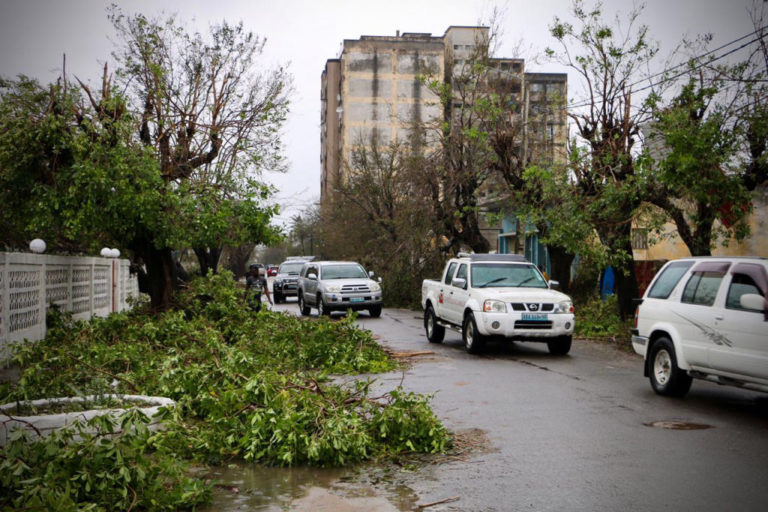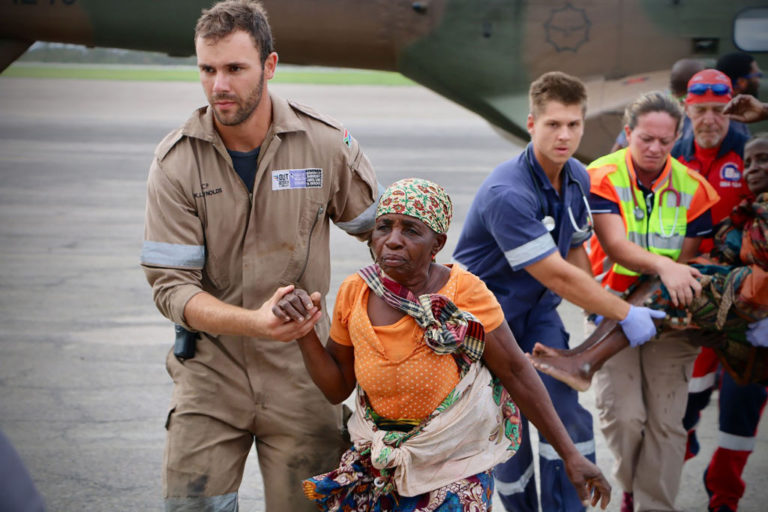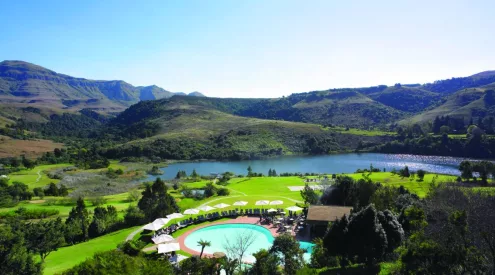While many countries’ travel advisories for Mozambique on government websites have not been updated to reflect the devastating effects of Cyclone Idai (including South Africa’s), Irelands’s Department of Foreign Affairs and Trade has issued this:
Tropical Cyclone Idai made landfall near the city of Beira on the evening of Thursday 14 March, resulting in the loss of life and causing extensive infrastructural damage. The provinces of Sofala, Manica, Zambezia, Tete and Inhambane have been subject to heavy rain falls, causing widespread flooding, with Sofala and Manica the most severely affected. Many areas are completely inaccessible due to flood waters and telecommunications infrastructure has also been severely impacted. Water levels are also expected to rise in the coming days in the Buzi and Pungoe River basins, bringing with it the risk of further flooding. Visitors are advised to avoid non-essential travel to the worst affected areas, while Irish citizens in the region should continue to monitor local and international weather updates and follow advice given by the local authorities.

A picture taken on 18 March 2019 shows emergency personnel vehicles driving in Beira, Mozambique, in order to assess the extent of the damages in the aftermath of the passage of the cyclone Idai. Photo credit: Adrien Barbier/AFP/Getty Images
A 15-member team of South African emergency workers from the Lenmed Private Hospital Group Rescue SA – and the KZN-based IPSS Medical Rescue and Rescue Care arrived in Maputo the day before the cyclone hit – Idai is the strongest cyclone on record in the Southern Hemisphere – and have returned from Beira on Wednesday 20 March, as rescue-relief teams arrived in Mozambique. The initial South African medical rescue team returned home, ‘suffering from extreme physical and mental fatigue’ according to TimesLive after conducting numerous rescues, aided by South African Air Force helicopters.

People are escorted to safety by aid workers at the airport of the coastal city of Beira in central Mozambique on 19 March 2019, after the area was hit by the Cyclone Idai. More than 80 people were rescued by Rescue South Africa and the South African army with helicopters from the Buzi area, province of Safala, where they were stranded since 15 March. Rescue workers in Mozambique were racing against time to pluck people off trees and rooftops on 19 March, after a monster storm reaped a feared harvest of more than 1,000 lives before smashing into Zimbabwe. Four days after Tropical Cyclone Idai made landfall, torrential rains and powerful winds, combined with flash floods that have swept away roads and bridges, inflicted further pain on the impoverished countries. Photo credit: Adrien Barbier/AFP/Getty Images
Many families in Mozambique, Malawi and Zimbabwe have been separated and The Red Cross has set up a website to help families find missing relatives: familylinks.icrc.org.
According to The Citizen, the world’s largest humanitarian network, the Red Cross and Red Crescent Societies (IFRC), has upscaled its work and a ‘mass sanitation Emergency Response Unit (ERU) was being deployed by the British Red Cross with support from the Swedish Red Cross, while the water ERU was being deployed by the Spanish Red Cross with support from the French Red Cross’.
East Coast Radio shared that the US Agency for International Development had sent a small 15-person group to Mozambique to provide water and hygiene with the potential for sending more aid.
‘USAID said it was providing $700,000 (about R10-million) in assistance – $200,000 (about R2.8-million) to respond to Cyclone Idai and the rest to cope with flooding earlier this month in Mozambique as well Malawi and Zimbabwe. World Vision, a US-based Christian charity, said it has provided aid across all three countries including mosquito nets and chlorine to 80,000 people in Malawi.’
For those who’d like to help, below are donation pages for relief organizations working on the ground.

















